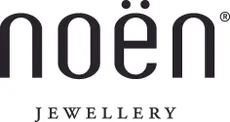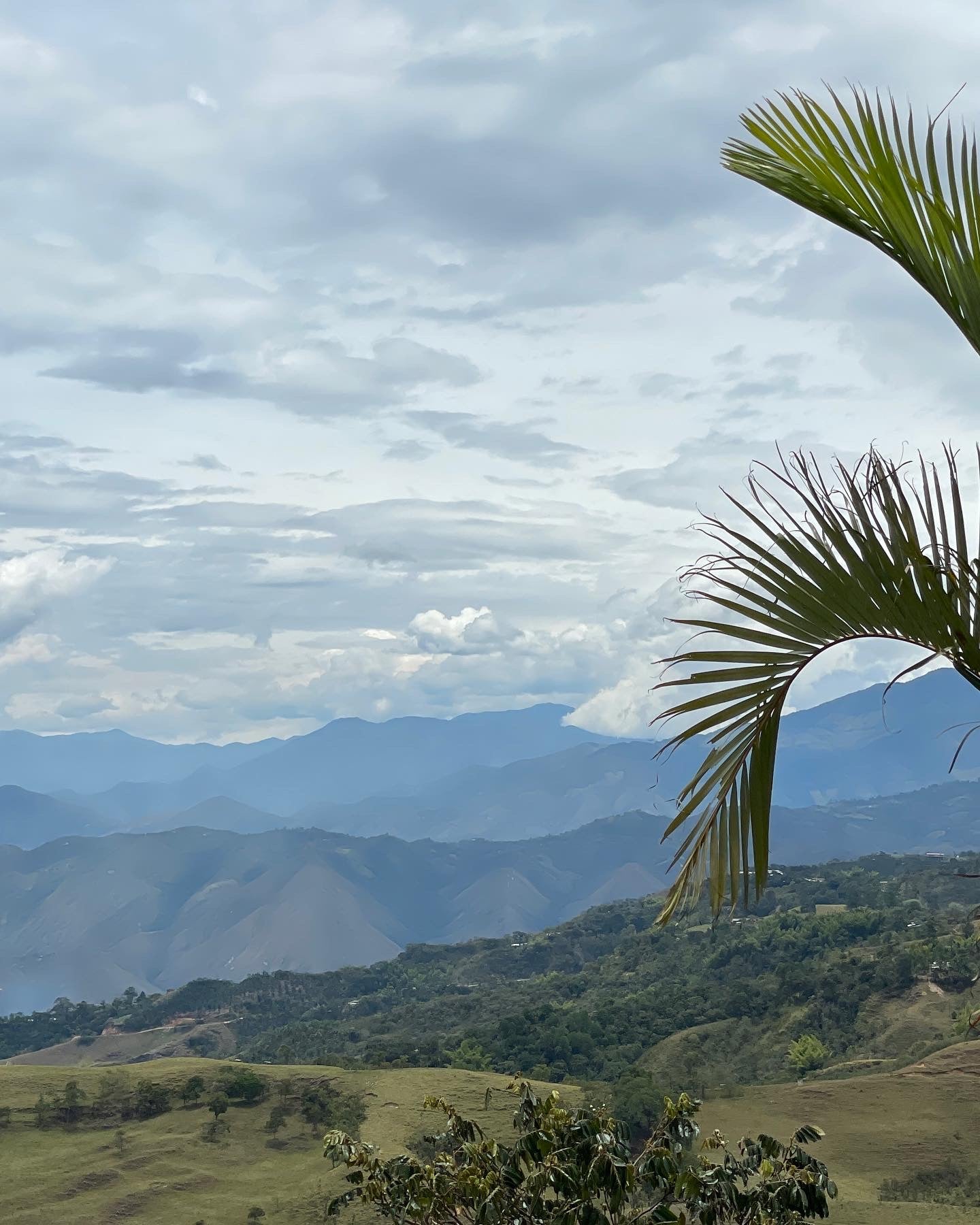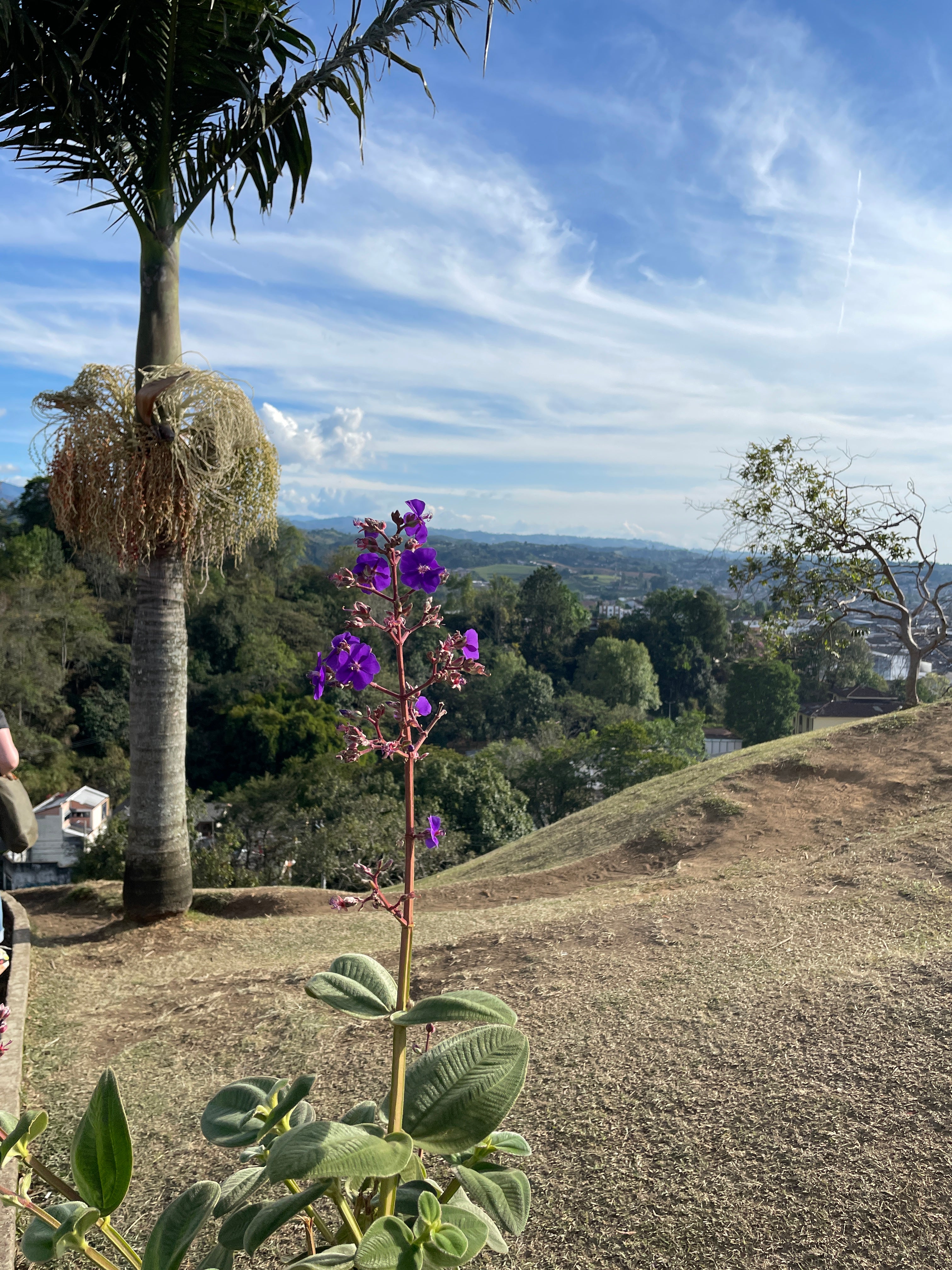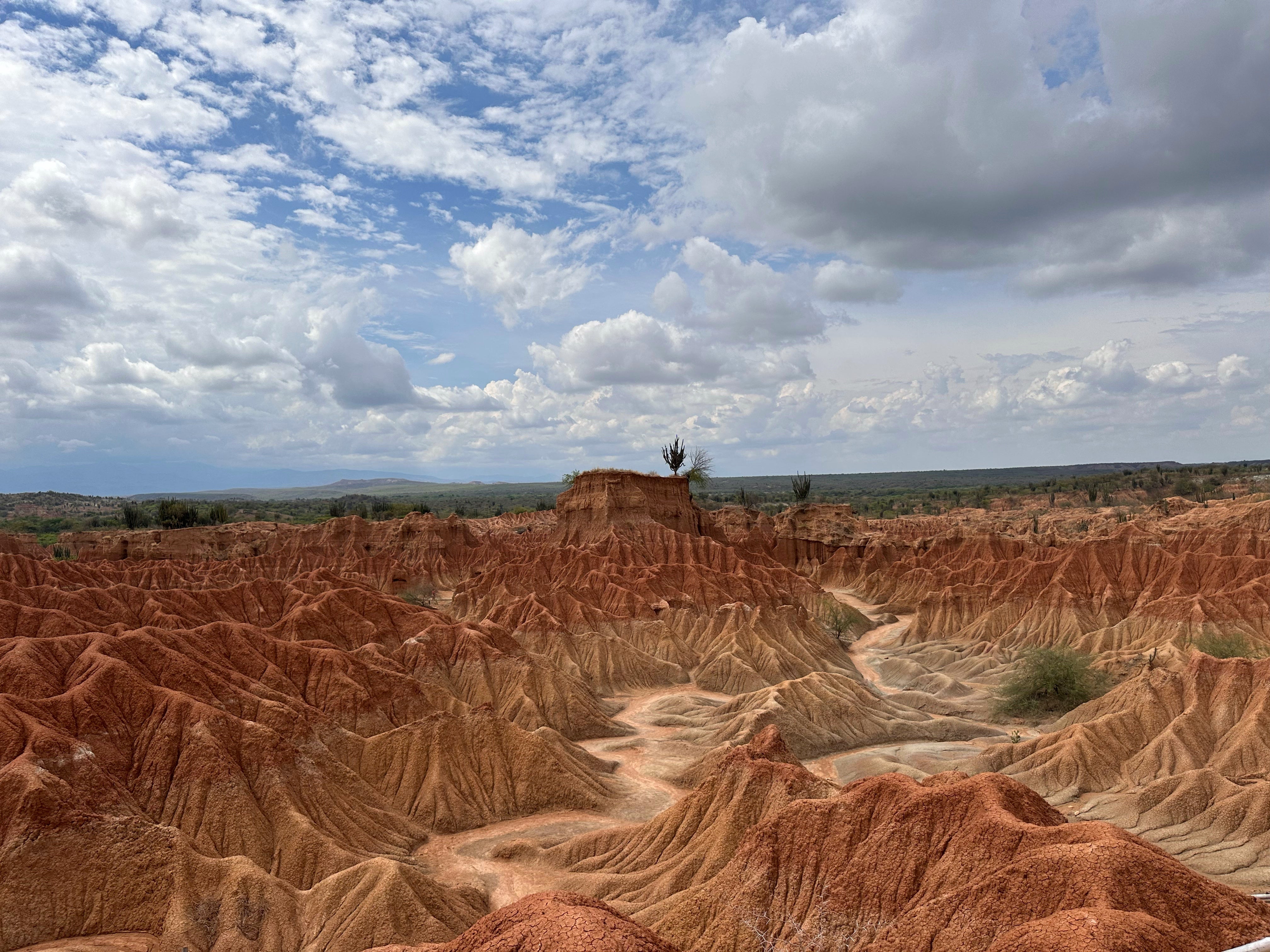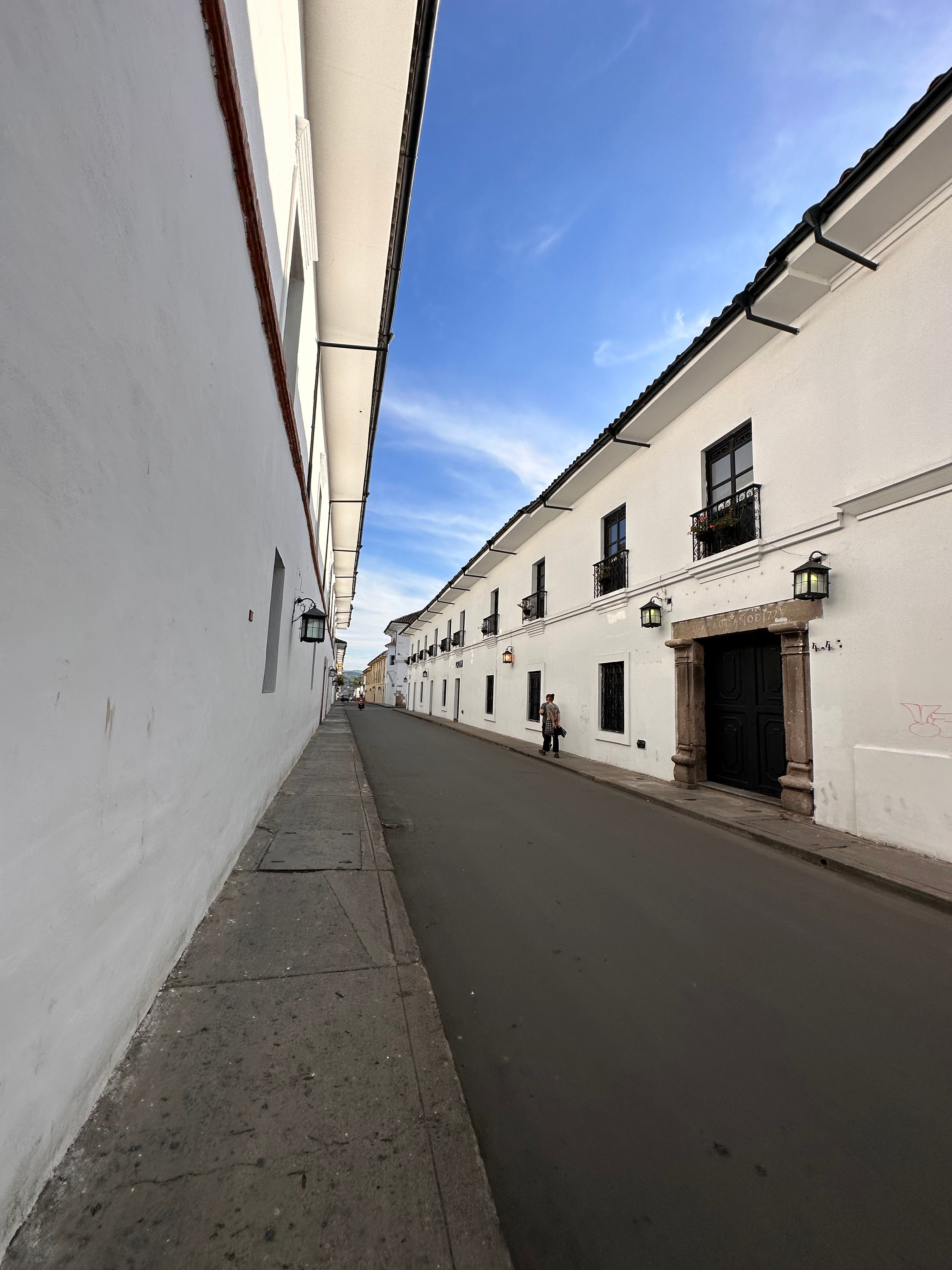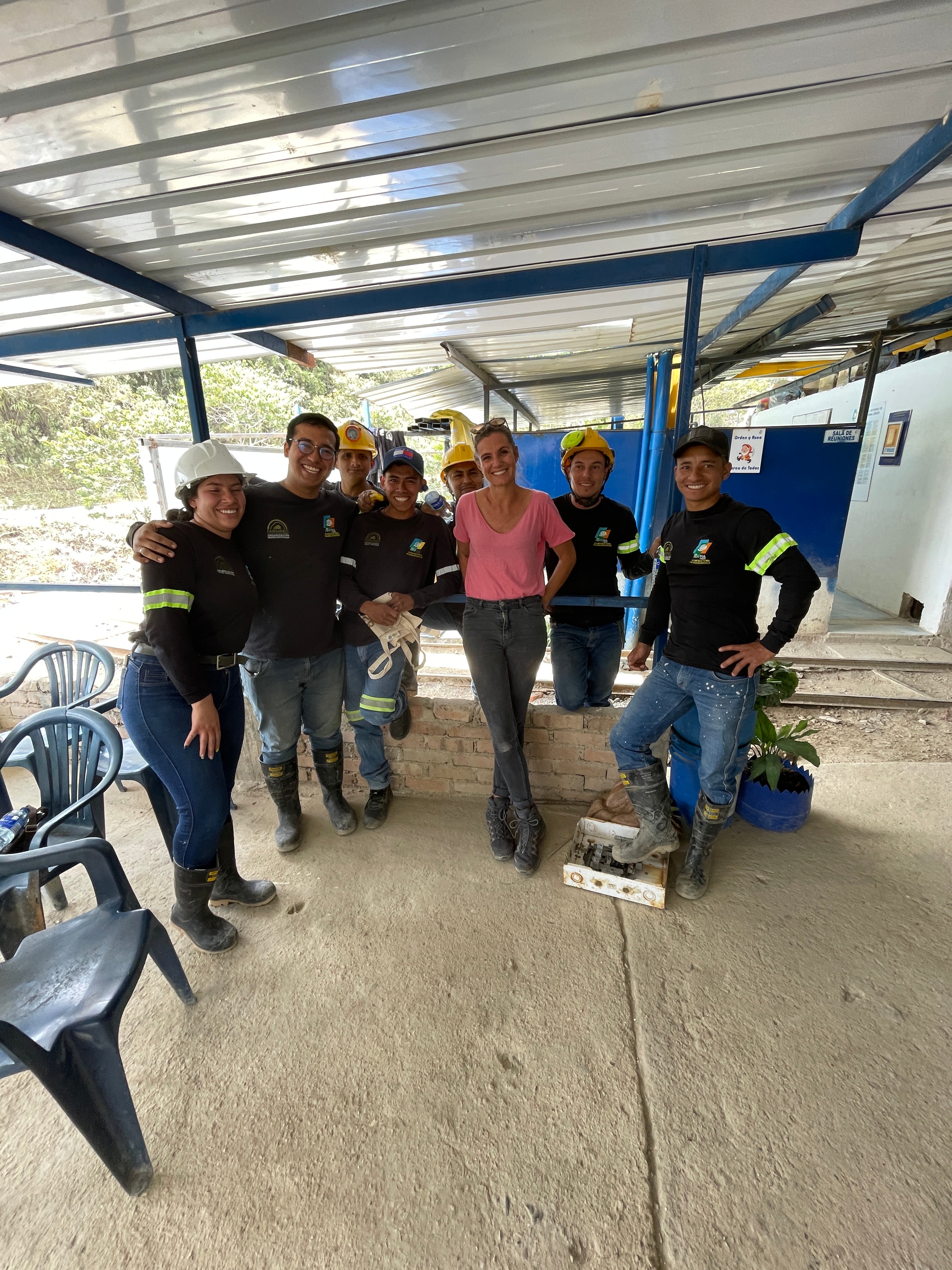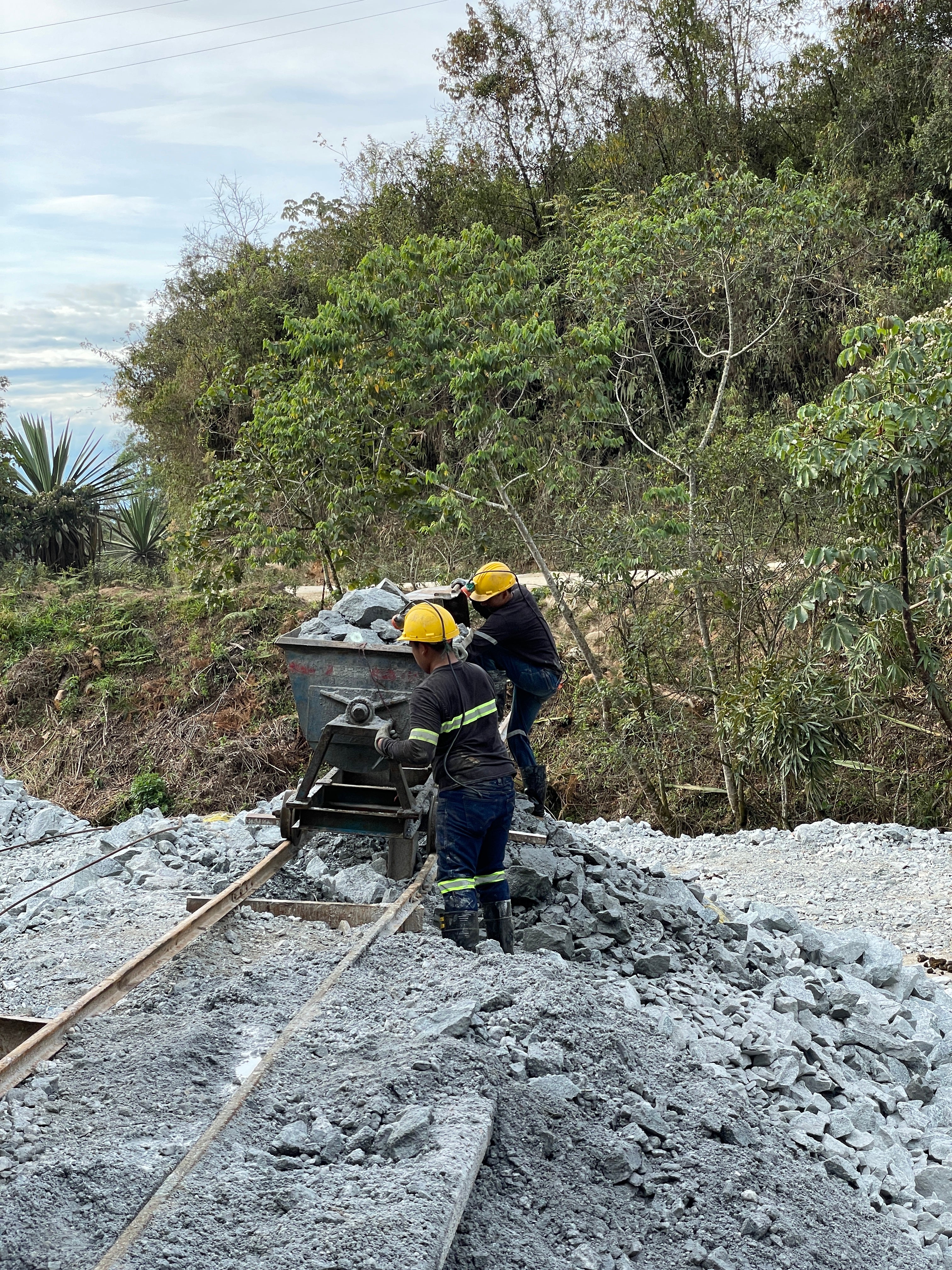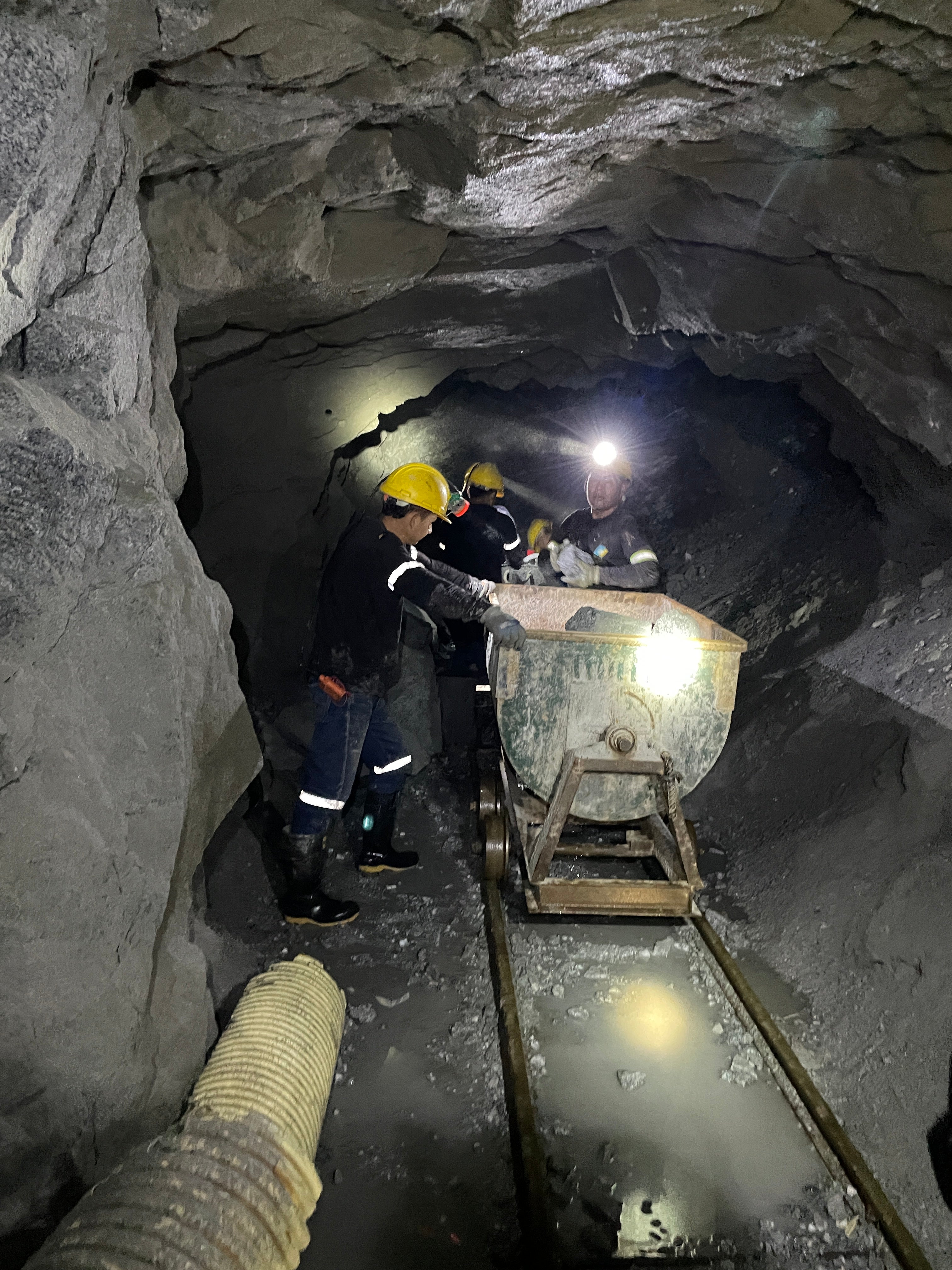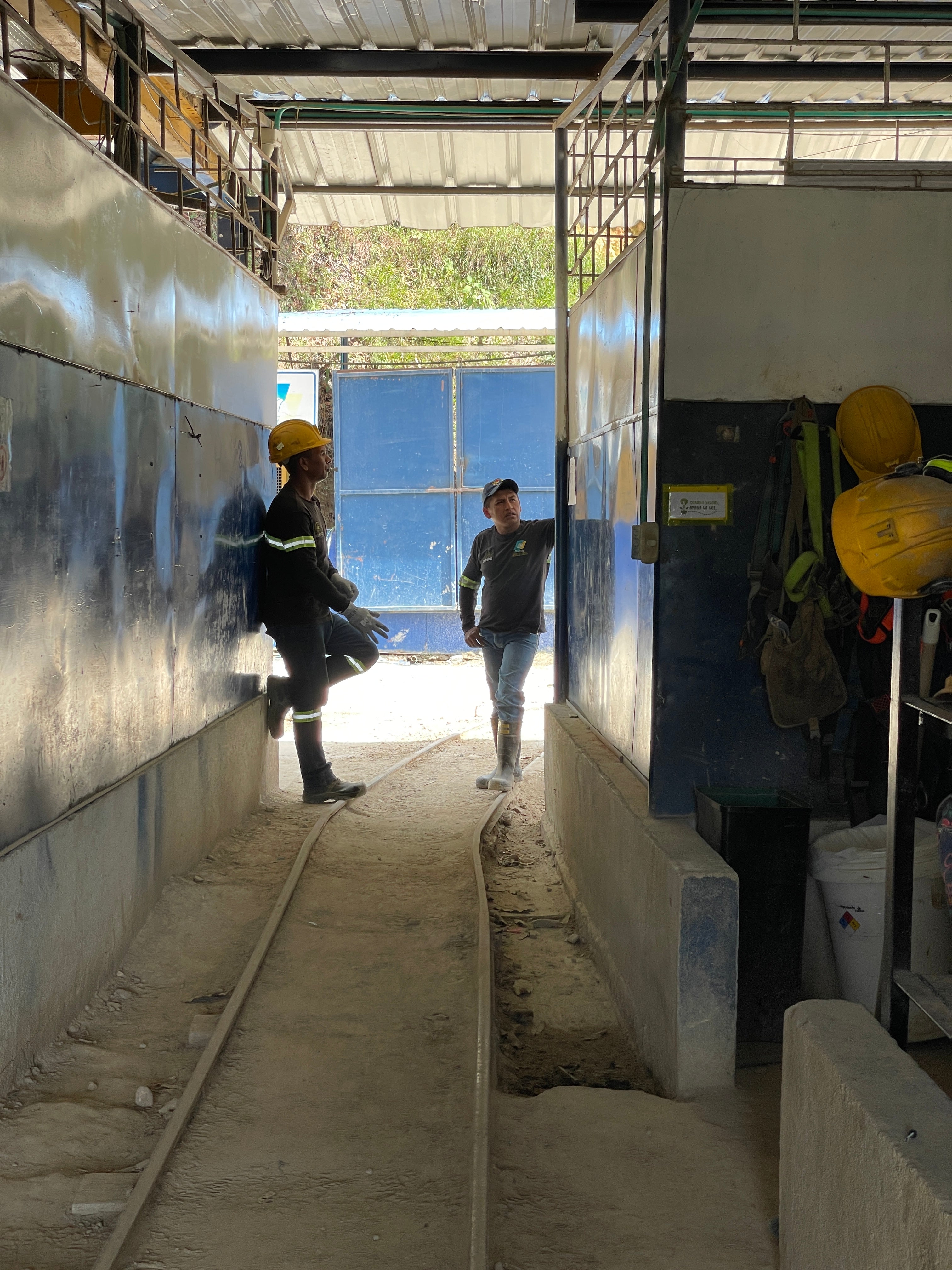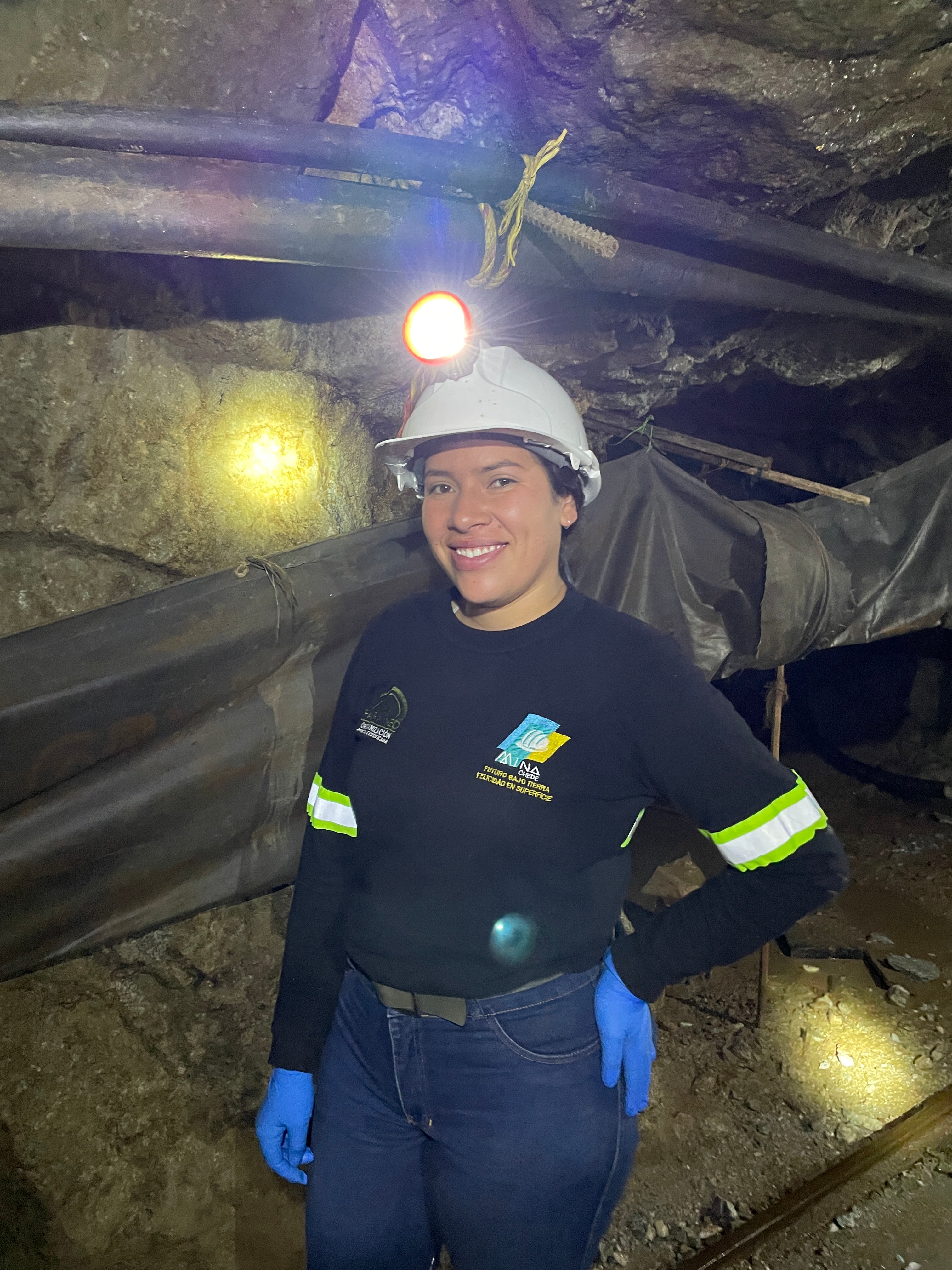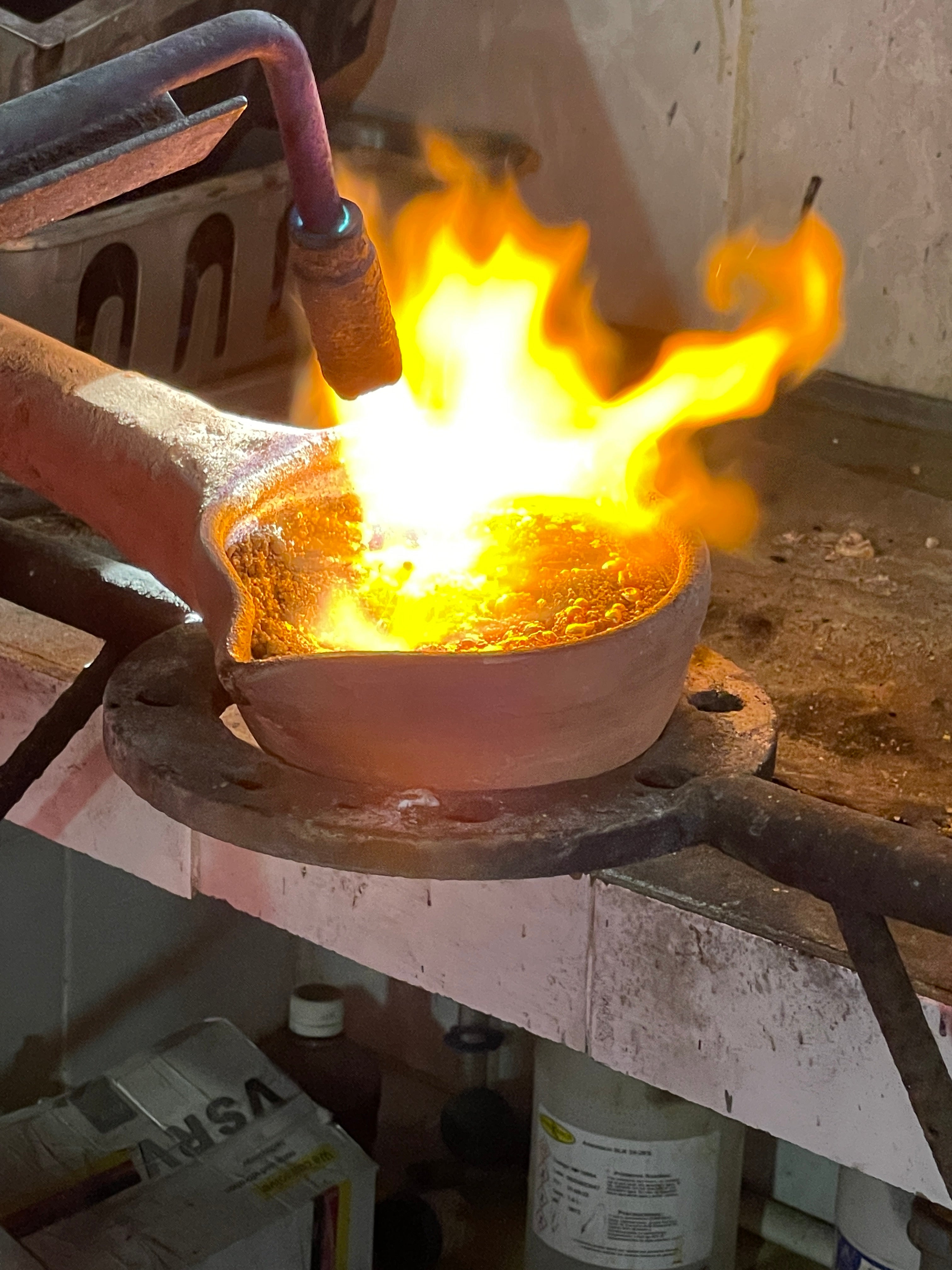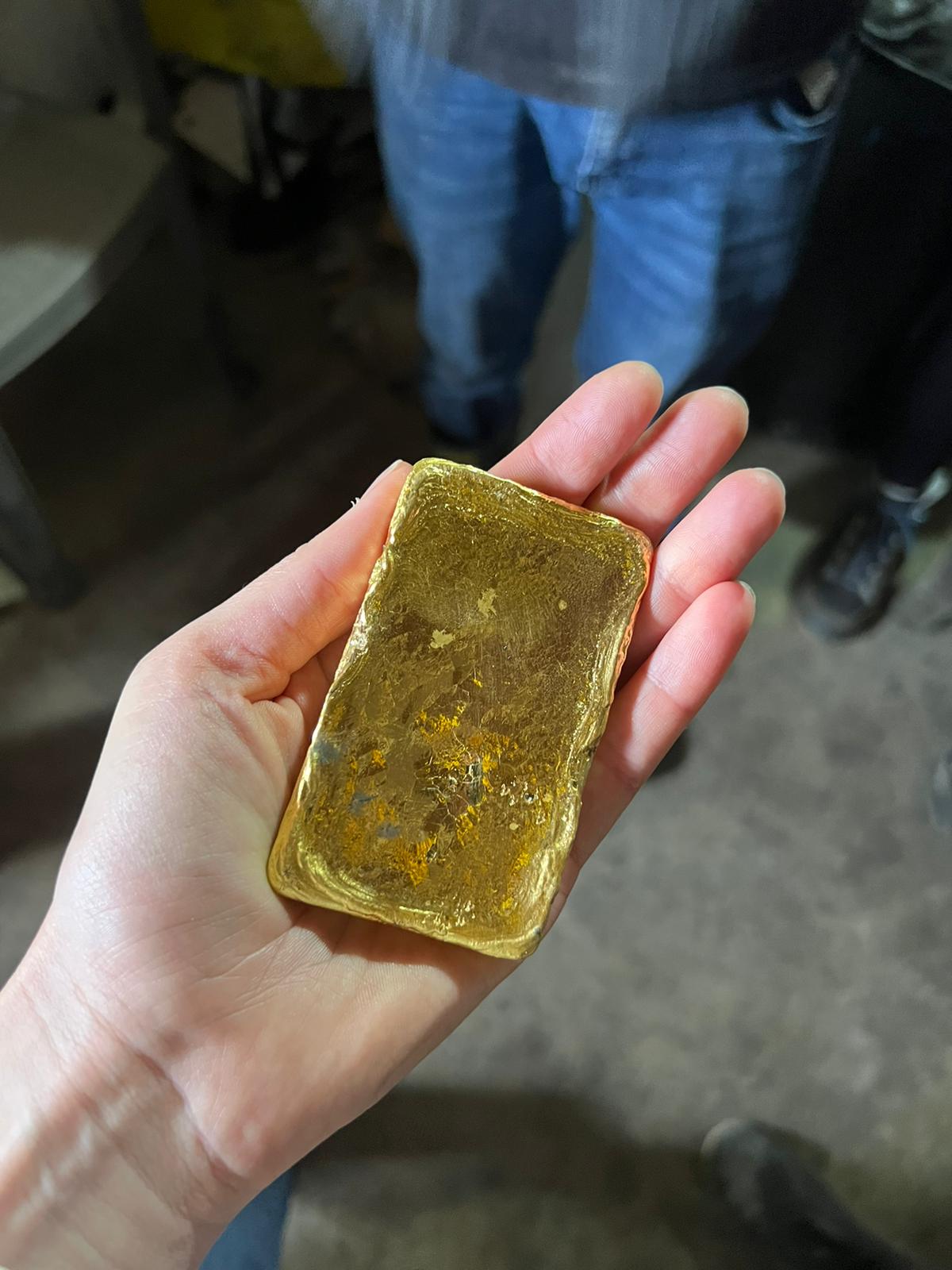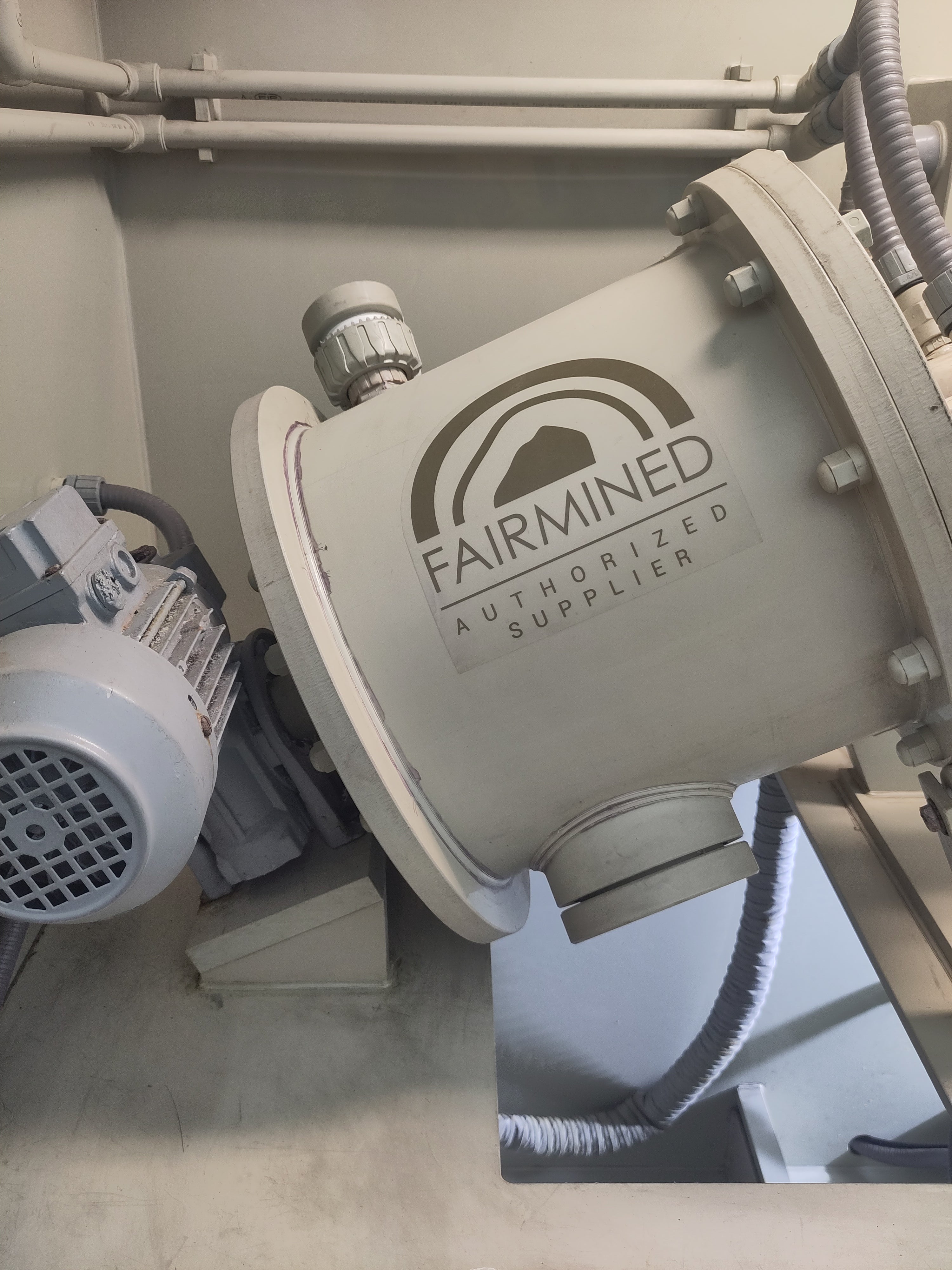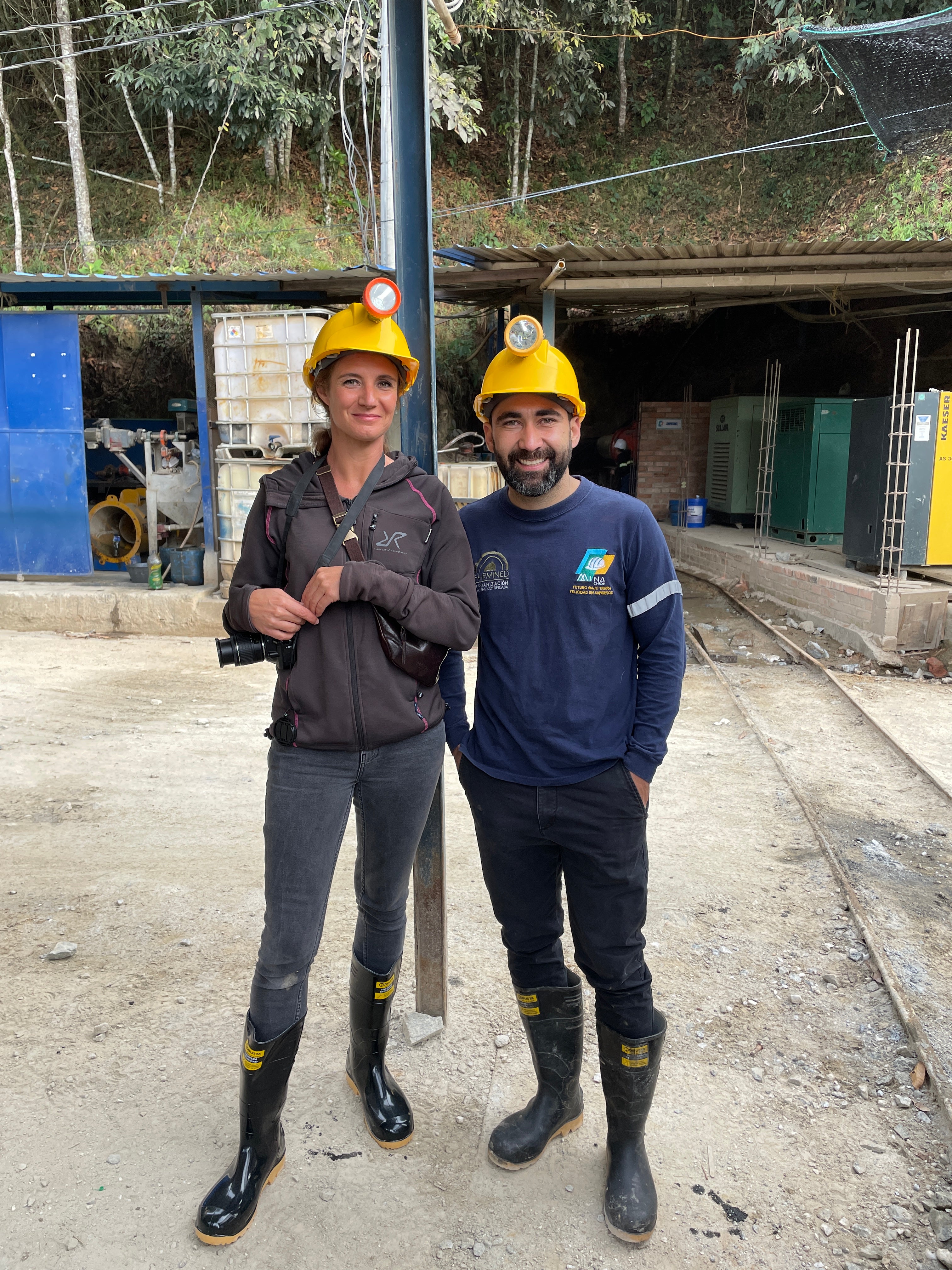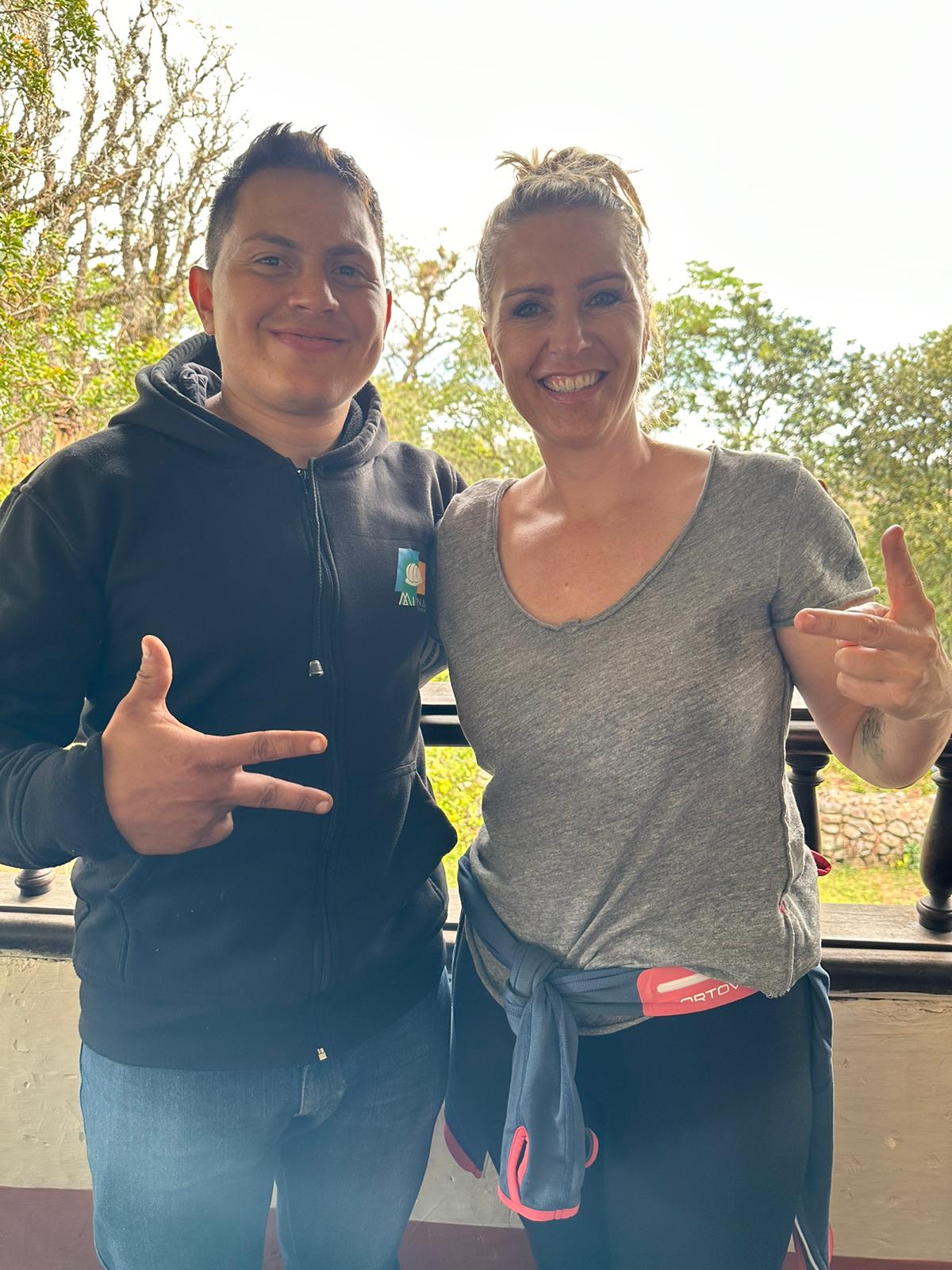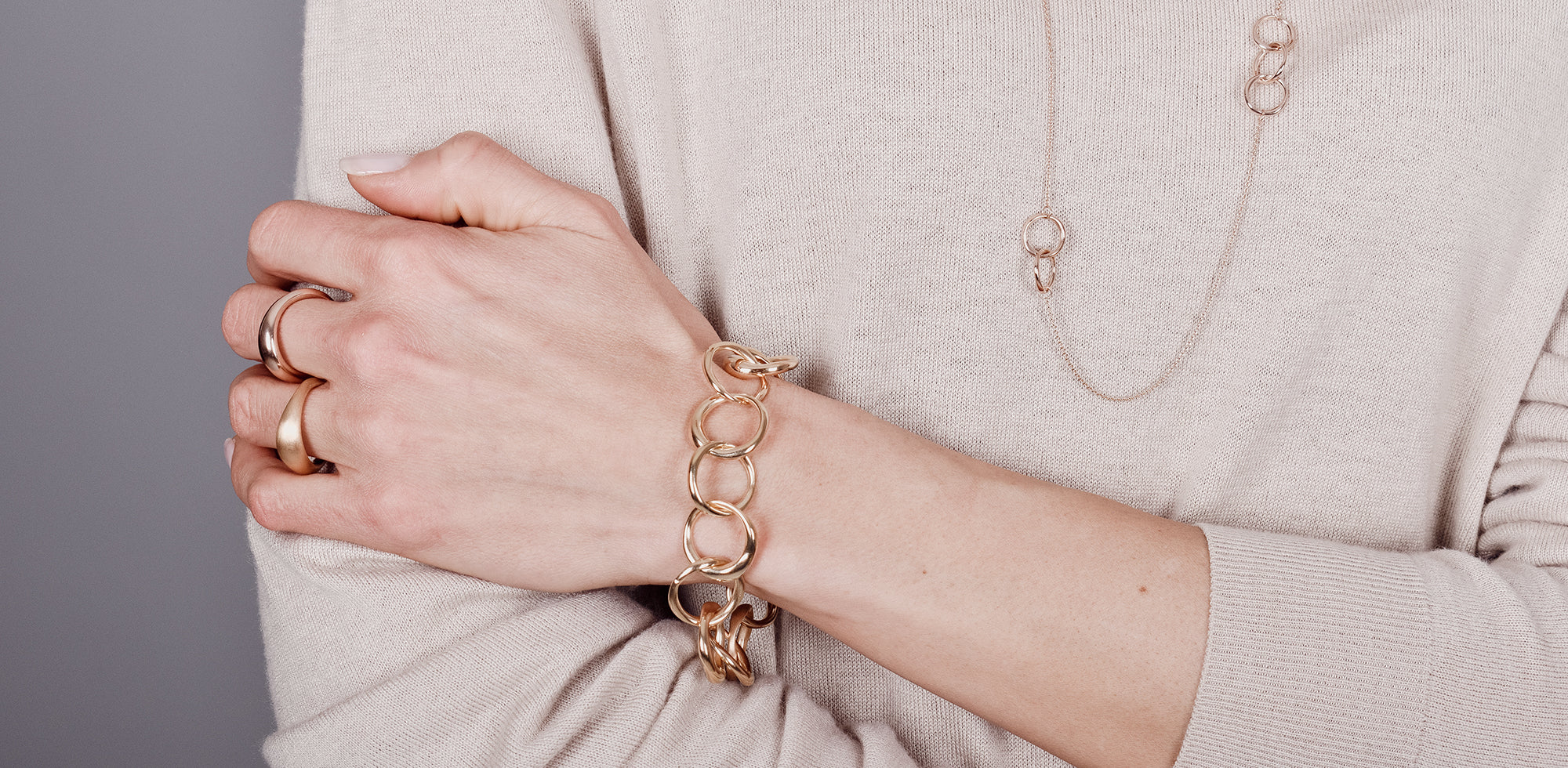Mining trip
Mining trip to Colombia in September 2023
The time had finally come again: in September, our founder Claudia Schindler embarked on a long-awaited trip to visit fairmined-certified gold mines in Colombia, with which we have been working in partnership for many years.
Since our foundation in 2006, Claudia has been aware that conventional gold mining in countries of the Global South has a catastrophic impact on people and nature. And the problem is becoming increasingly urgent: the rising gold price and increased demand mean that never before in human history has so much gold been mined as today. Gold mining is often the only and most lucrative source of income for the 150 million people who depend on small-scale mining. And this is precisely why the social and ecological problems associated with gold mining are growing. The consequences for our environment are dramatic; and it doesn't matter whether industrial mining companies are legally removing entire mountains and leaving behind a destroyed environment, or whether small-scale mining is illegally extracting gold with mercury.
On site in Colombia, Claudia was able to see the devastating consequences with her own eyes: To the right and left of the road, illegal small-scale mines were omnipresent. Here in the south of Colombia, there are important mining areas in the country where gold and silver have been mined for many decades. Obviously, people are digging here day in, day out for the coveted precious metal gold, destroying our planet and their own health through the use of mercury under catastrophic living and working conditions.
The main reason for the trip, however, was to visit fairmined certified mines that are doing pioneering work and making a positive difference:
Claudia visited miners and a refinery that play a leading role in fair and responsible gold sourcing worldwide: Firstly, Claudia was able to visit the Chede mine in southern Colombia (Cauca). It is located in a structurally and politically very unstable region. Away from the usual tourist routes, we traveled through the breathtaking Colombian landscape.
Subheading
Gallery
On arrival at the mine, Claudia was able to see for herself that the fairmined certificate makes a big difference for many people. The owner family has owned mining rights for generations. However, when they learned about the Fairmined certification system, they were immediately convinced that their mine could meet these strict requirements and thus become a positive example of responsible mining that changes living and working conditions in the region in the long term. They achieved this goal in 2018. The fairmined certification is the highest certification available in responsible mining. And certification is often a process that takes years and requires a high level of investment.
There are now 72 people working here, 14 of whom are female. Child labor is of course strictly prohibited there. They mine the valuable precious metal underground under strict environmental regulations, which we then process into unique pieces of jewelry in our manufactory.
The visit to the Chede mine and the exchange with the people working there left Claudia with a euphoric feeling: Whether we are a German family business that manufactures luxury jewelry or a Colombian family business that mines precious metals, we share
a common vision, we have a common driving force for our daily entrepreneurial actions: to protect our planet and leave our children a place worth living in!
Claudia's mining trip through Colombia continued to Neiva, a city in the southwest of the country. Here she was able to experience once again what it means to work in a certified mine and the positive impact that fairmined certification has for the miners and our environment.
The Iquira mining cooperative has been fairmined certified since 2014, making it one of the first mines to meet the high environmental and social standards of the Alliance for Responsible Mining. The cooperative is located in the heart of Colombia's best-known coffee-growing region. When a quiet but steadily growing demand for responsible gold developed in the early 2000s, several coffee farmers from the region organized themselves to form a cooperative that could obtain official mining licenses. Even today, the Iquira cooperative is unique in that it does not live exclusively from responsible gold mining, but also from coffee cultivation. Noen was already sourcing responsible gold from Iquira in mid-2000. At that time, however, it was still known as Oro Verde.
Today, 143 people live and work in the cooperative, who see themselves as pioneers in changing the world of small-scale mining and thus bringing about not only positive local but also global change.
